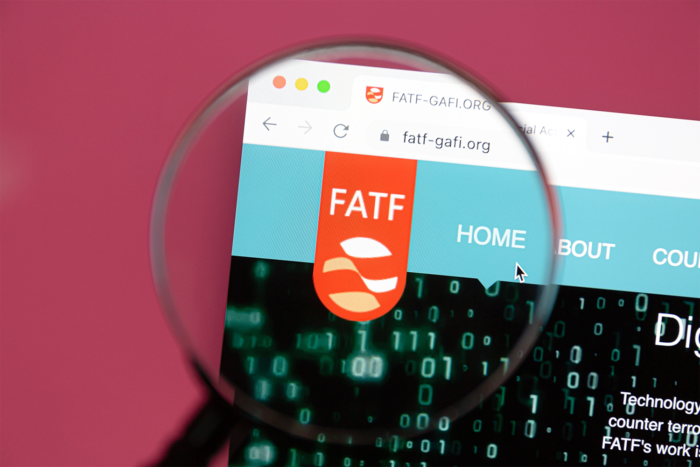About the FATF
Established in 1989 by the Group of 7 (G7), the Financial Action Task Force (FATF) is an intergovernmental task force that functions as an international watchdog for global money laundering and terrorism financing.
The FATF regularly reviews countries with deficiencies in anti-money laundering (AML), financing of terrorism (CFT), and counter-proliferation financing (CPF) and works with them to improve their systems, to ensure they’re in line with and do not present a risk to the international finance system.
The Review Process
The FATF has a set of criteria it uses to assess each jurisdiction, which are focused on addressing issues related to risks, threats, and vulnerabilities. Should a country be found to be in need of review by the International Cooperation Review Group (ICRG), it will have one year to address the issues raised.
Failure to Reform
During this time, the FATF will expect high level government commitment towards addressing and implementing reforms. Failure to do so will result in potential public identification and the issuance of a formal review. Should the FATF decide there is insufficient progress, an action plan will be developed to “address the remaining strategic deficiencies”.
Risk Status
As part of its remit, the FATF has different risk levels and statuses it can apply to countries, including:
- Jurisdictions Under Increased Monitoring (“Grey List”): actively working with the FATF to resolve inadequate counter-money laundering and terrorist and proliferation financing regimes
- High risk jurisdictions subject to a call for action (“Black List”): a country with serious deficiencies with regards to countering money laundering and proliferation and terrorist financing.
Removed from Review Status
To be removed from review status, a country must address the majority of its action plan requirements and undergo an onsite inspection by FATF officials who can confirm that reforms are both underway and are viable.
Provided those criteria are met, the subsequent plenary (the decision-making body of the FATF) will remove that country from review status.
Recent FATF Actions
As reported by the Financial Crimes Enforcement Network (FinCEN), the FATF, at its most recent plenary (in February 2025) updated the status of several countries:
- The Philippines was removed from the grey list
- Nepal and Laos were added to the grey list
- The FATF reiterated the need for countries to “apply countermeasures” on Iran, the Democratic People’s Republic of North Korea (DPRK), and Burma.
FATF Updates in 2025
2025 has seen several important updates and announcements from the FATF.
2023-2024 Annual Report
Published in January 2025, and covering 1 July 2023 to 30 June 2024, the most recent annual report highlighted several recent achievements, including:
- Staying apace with and identifying emergent risks
- Improving global transparency standards and partnerships with FATF-style regional bodies (RSRBs) and strategic partners such as the IMF and INTERPOL
- Initiating new mutual evaluations (country reports analysing the implementation and effectivity of AML/CFT/CPF measures)
- Expanding the FATF’s membership by welcoming Indonesia as a full member
- Strengthening standards by revising seven FATF recommendations concerning ownership transparency and criminal proceeds recovery
- Improving the AML/CFT/CPF systems of over 60 countries – including 40 non-FATF members
Updating FATF Standards
On the heels of the February 2025 plenary, the FATF updated several recommendations (a standard set of criteria countries are expected to meet with regards to improving AML/CFT/CPF standards) and associated interpretive notes and glossary definitions – all of which would “better support financial inclusion”.
Proposals for a Public Consultation
An invitation for “interested stakeholders” to partake in a public consultation was issued in late February, inviting new views and comments concerning the FATF’s guidance on AML/CTF measures and financial inclusion. The consultation period ran from 25 February to 4 April 2025.
Updates on jurisdictions under increased monitoring issued
The FATF issued an update on countries on the grey list and included in its report countries who chose to defer reporting.
February 2025 FATF Plenary Outcomes
The FATF published the outcomes of its 19-21 February 2025 plenary, which saw agreements reached regarding:
- Improvements in protecting children;
- Welcoming Kenya to participate at the FATF Plenary and Working Groups; and
- Updating standards to “better support a risk-based approach and financial inclusion”
Nigeria’s possible exit from the grey list
Nigeria, which was added to the grey list in February 2023, may soon be removed from the list following the implementation of digital asset regulations that would curb fraudulent online activities.
Key Takeaways
The work conducted by the FATF is designed to help countries combat money laundering and proliferation and terrorist financing, thus ensuring the integrity on both a local and international level of the global financial system, whilst also setting the rules and standards for all countries to adhere to if they wish to participate in the global economy.



